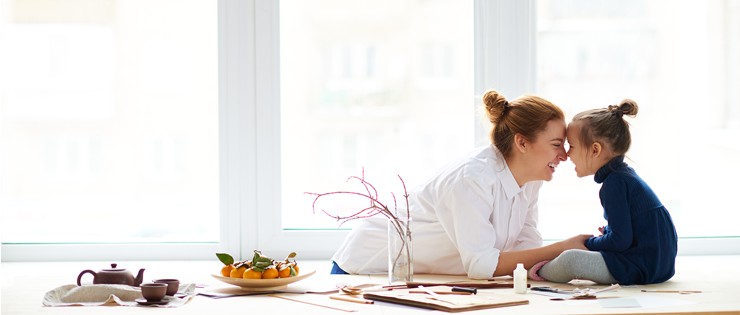
Ask any parent what they want for their kids and in the top 3 responses, if not at the very top, will be “happiness”.
Different parents will use different words and language but in some way or other, they’ll all want for their offspring some version of health, happiness and/or success.
Within the academic field of Positive Psychology, where “happiness” is studied and analysed in great detail, this collection of desired outcomes would technically be described as “thriving” and “flourishing”.
In simple terms, parents want the best for their kids and further, they often want to know what they, themselves can do to contribute to and help their children live their best possible lives.
This is what’s come to be known as “positive parenting” and there are many strategies that would fall under this general headline, one of which is “mindful parenting”.
You may well have heard of “mindfulness” but do you know how mindfulness relates to parenting and how mindful parenting can help your kids thrive?
Let’s start at the beginning…
Although there are many definitions of mindfulness the simplest, and my personal favourite is “non-judgemental observation”. That is, observing phenomena (like thoughts and feelings) with curiosity but without labelling as either good or bad.
As parents, we’re often (unconsciously) describing the behaviour of our children, in our thoughts and/or with our words, as “good” or “bad”, as “right” or “wrong”. Although this is natural, to some extent, it’s not always helpful.
Labelling and judging in this way directly influences our responses and most notably, when we view a particular behaviour or response as “negative” our reactions will then be tainted by emotions such as anger or frustration, irritability or some other form of distress. Now, let me be clear, it’s perfectly normal and even at times appropriate to be upset with your children; but at the same time, it’s not always helpful or desirable as our responses under these influences will not always be as rationale or constructive as we’d like.
In contrast, mindful parenting has the advantage of giving us time to respond more calmly; more positively; with the best interests of all involved given more weight. Mindfulness puts some space in between a particular action and your reaction, enabling the mindful parent to feel more in control and to act in a more considered manner.
So how does it work in practice? Check out my top tips for mindful parenting:
Make a conscious effort to just be, to be present, each and every day (even if just for 5 – 10 minutes) – practising mindfulness on a regular basis will allow you to use it more effectively when you really need it
Use mindfulness to manage stress – and manage stress when it pops up, before it builds up! Too often we wait until we’re at “boiling point” before we take action when in fact it’s much easier to resolve most situations if you get in early
Be mindful that “good enough” is something to embrace as a parent – unrealistic expectations (especially those seeking “perfection”) are a sure-fire way to create excessive pressure and to generate frequent feelings of disappointment and failure
Cultivate compassion for your children – be mindful of who and what they are; young and inexperienced humans trying as best they can to
cover a complex and challenging world. Accordingly, be mindful that they will make mistakes; and that that’s OK; part of your job is to help them learn
And save some of that compassion for yourself – because you too are (or should be!) learning every day; and you too are not perfect. So remember that imperfection is part of the human experience; you’re not alone in being imperfect; in fact it’s imperfection that unites us